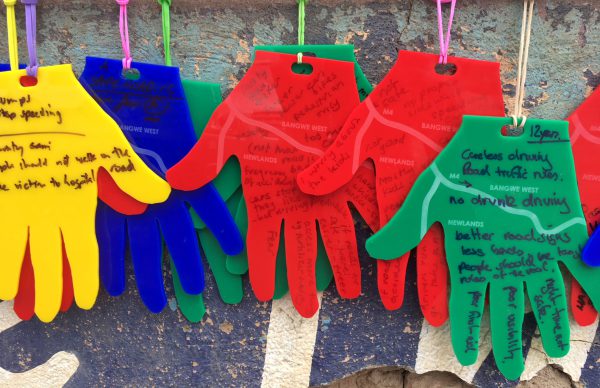

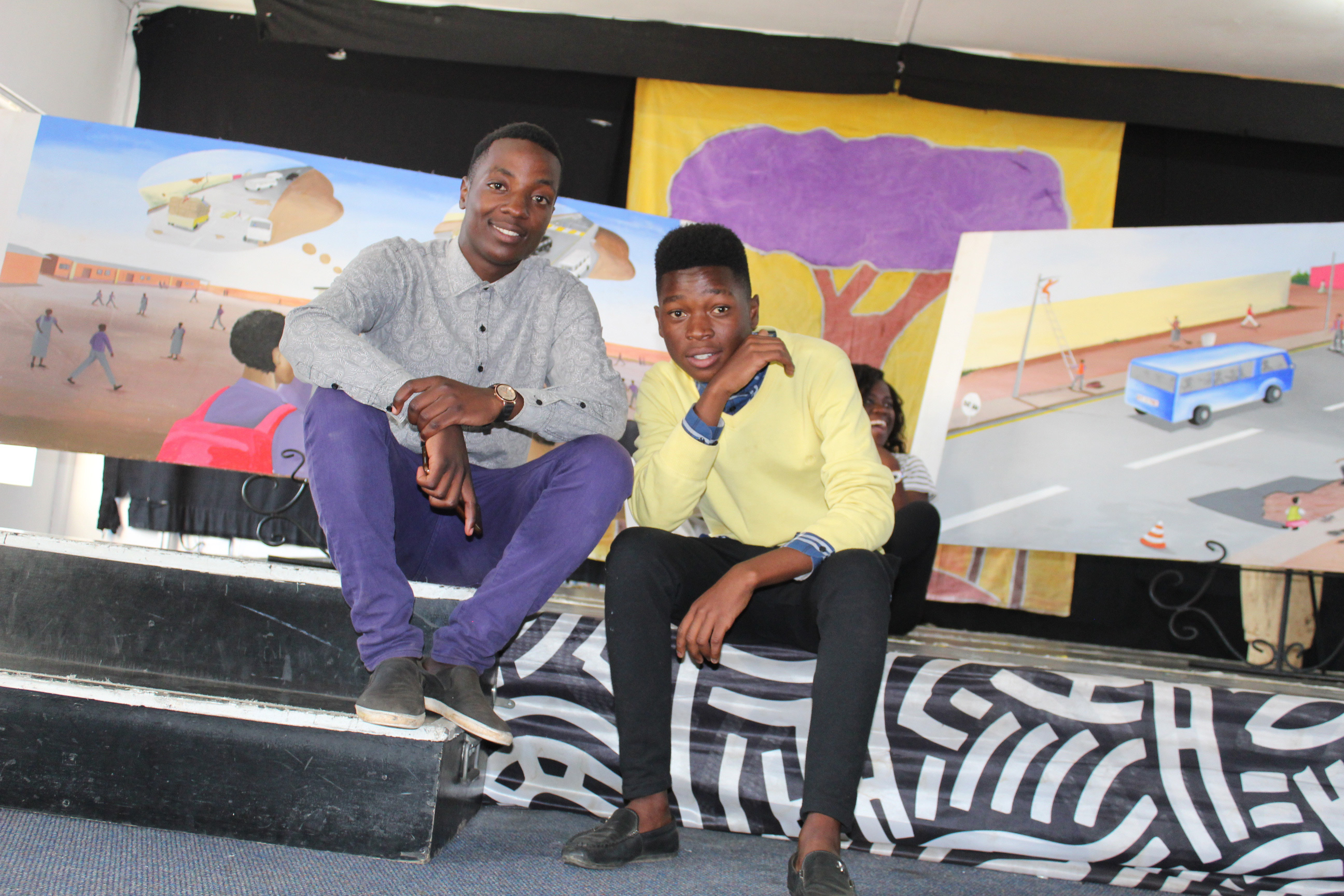

It is founded on evidence from three previously unconnected areas: rights-based youth work, road safety education, and intergenerational approaches to co-producing local development. There are good theoretical grounds for taking an intergenerational approach to learning and education in the co-production of community-based solutions. Our research seeks to draw on young people’s own expertise to co-produce solutions to road safety.
From November 2018–June 2019, the research team engaged with two young adults (Clement Kammkwamba and Rueben Salima, both recent graduates of Jacaranda School for Orphans and accomplished artists. They are worked with existing Jacaranda pupils, teaching them art as part of a ‘Year of Service’ to the school in which they develop further capabilities for employment and higher academic study. The research team, Clement and Rueben, and the management of Jacaranda used the “Under the Same Sky Framework” as the basis for developing a co-constructed intervention and hypothesized programme theory. The outcome was the Chitetezo intervention: a series of activities led by trained youth peer facilitators, over approximately 10 sessions, to groups of 8-12 adolescents per school.
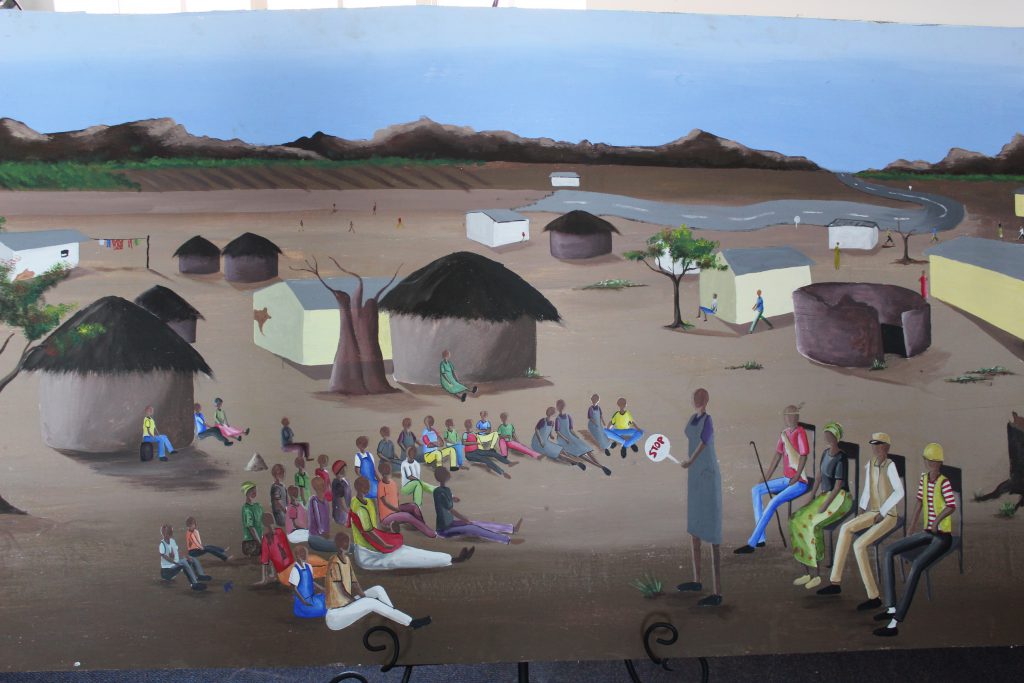
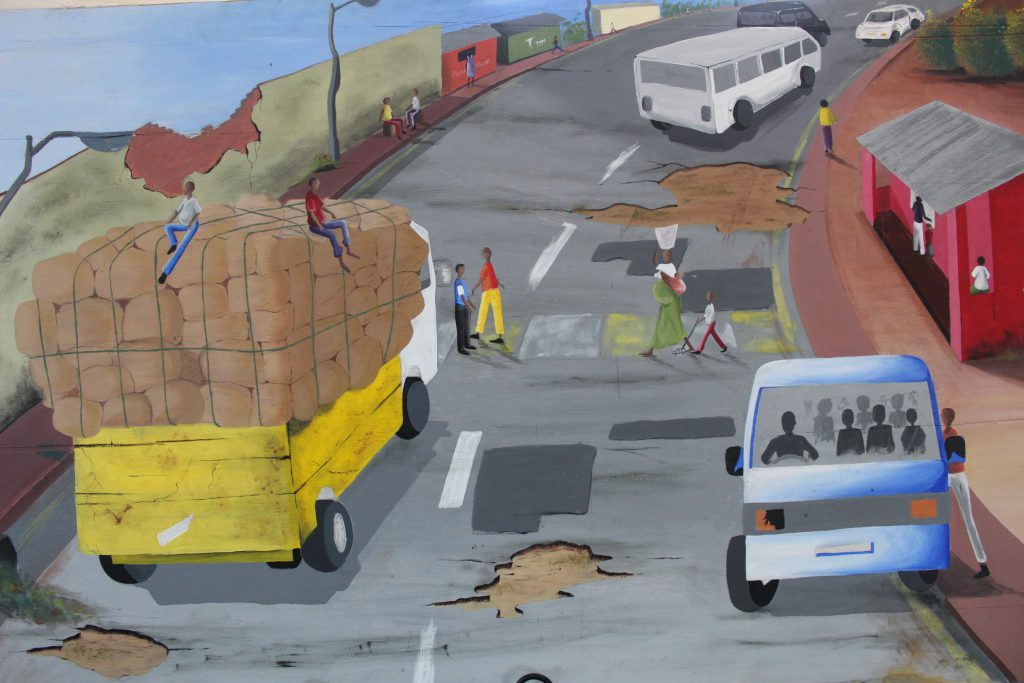
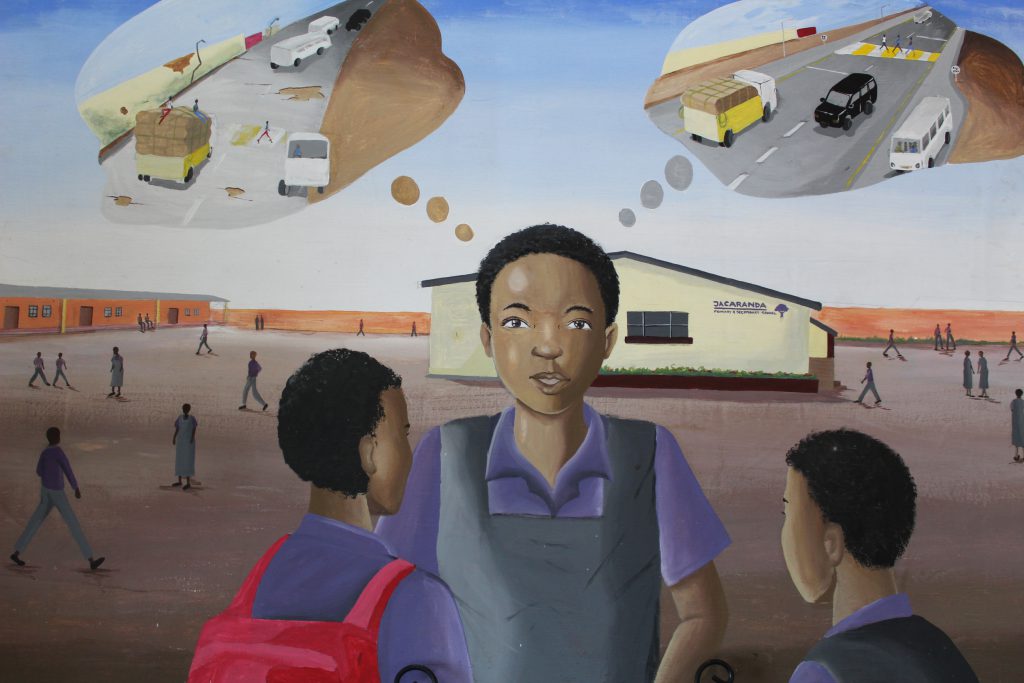
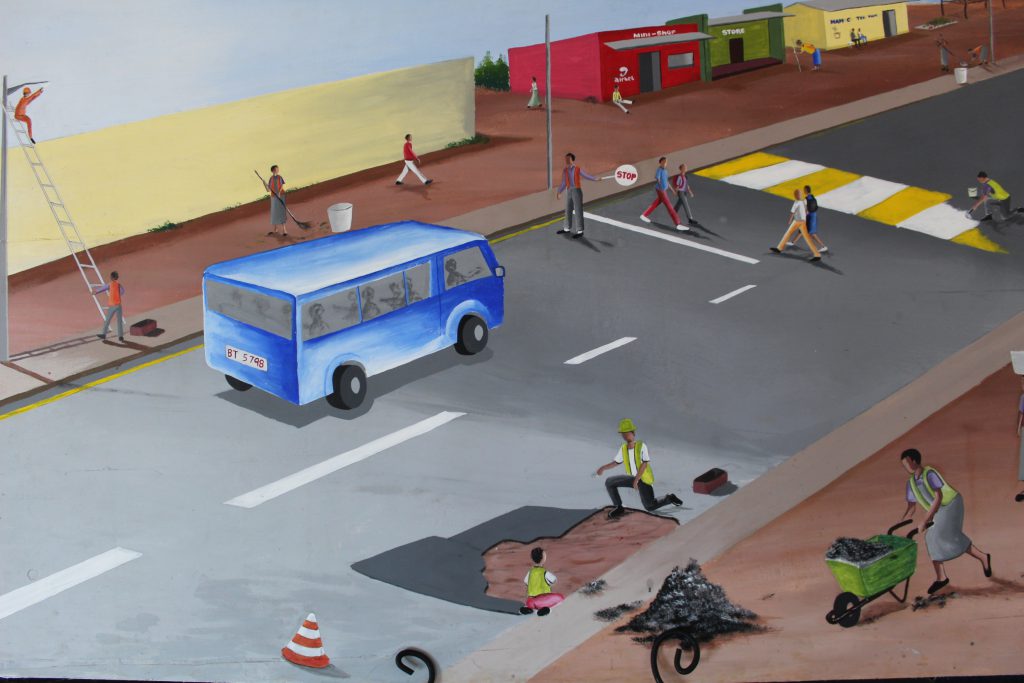
The young people then use these large, but mobile, art works as an amplification mechanism to engage first with pupils in their own school to improve road safety behavior, and then with civic society (Local and National Government agencies) to lobby for specific local road infrastructural improvements.
Following a successful intervention development and initial feasibility-testing phase, we are currently seeking funding for further evaluation of Chitetezo in other school and community settings.
This research is jointly funded by the UK Medical Research Council (MRC) and the Foreign Commonwealth and Development Office (FCDO) under the MRC/FCDO Concordat agreement, together with the Department of Health and Social Care (DHSC)

